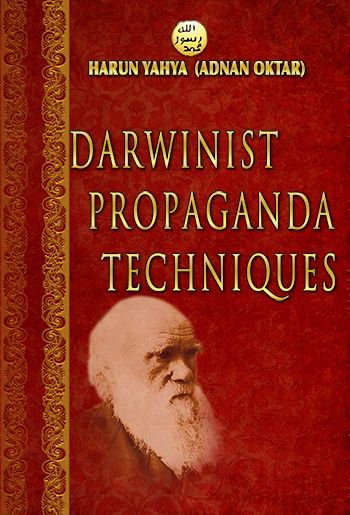Bigotry: The Dark Danger
Allah, the all merciful and most merciful does not give a person a load too heavy for him to carry

Our Lord, give us mercy from Your Sight and open the way for us to right guidance in our situation. (Surat al-Kahf, 10)
|
Everyone has a different level of intelligence, cognitive ability, education, conceptual ability, and physical strength, for Allah has given different abilities to people in order to test them in the most appropriate manner. For this reason, every person's endurance, determination and capacity are different. Allah has created the tests of the life of this world differently according to each individual. Allah uses different events and individuals as means to subject every person to different kinds of tests. But there is something very important here that we need to consider:
"The adversities that a person encounters in life may appear difficult at the time, but actually everything that happens is of an intensity that can be endured." Allah knows very well what each person can bear and, in His endless justice, does not move His test beyond that point. This is a promise from Allah and a manifestation of the All Merciful and Most Merciful. The Qur'an says the following:
We do not impose on any self any more than it can bear. With Us is a Book that speaks the truth. They will not be wronged. (Surat al-Muminun, 62)
As for those who believe and do right actions – We impose on no self any more than it can bear – they are the Companions of the Garden, remaining in it timelessly, forever. (Surat al-A'raf, 42)
Allah does not impose on any self any more than it can bear. For it is what it has earned; against it, what it has brought upon itself. (Surat al-Baqara, 286)
Some individuals are made to live in poverty to test their patience. Some are made to live in abundant wealth to test their thankfulness, morality, and level of worldly ambition. But, in the end, the rich person and the person living in crushing poverty live the best lives for themselves and for the Hereafter.
Poverty and wealth are not unendurable hardships, regardless of how long they last, for such circumstances will not change the true character of any believer. In the end, both groups of people are tested on the basis of the moral character they display. Either they will try to draw closer to Allah and their love of Allah will lead them to adhere to the Qur'an's morality, or they will be ungrateful and ignore the limits that He has placed upon humanity. In every adversity, people who fear and respect Allah turn to Him, seeking His help and favor. They do not despair and never abandon their Qur'anic morality, no matter how severe the test may be. Their trust and submission to Allah causes them to see all adversity as a mercy from Him and, as a sign of His eternal compassion and mercy, Allah enables them to endure the test. In Surat al-Kahf this truth is revealed as follows: "But as for one who believes and acts rightly, he [or she] will receive the best of rewards, and We will issue a command, making things easy for him [or her]" (Surat al-Kahf, 88)
In another verse Allah has revealed as follows:
As for one who gives [charity], is heedful, and confirms the Good, We will pave his [or her] way to ease." (Surat al-Layl, 5-7)
 For those who do not trust and rely on Allah, who are ungrateful and do not believe or practice the Qur'an's morality, even easy situations can seem difficult. Allah always makes things difficult for them because of their ingratitude, lack of faith and refusal to practice the moral teachings of the Qur'an:
For those who do not trust and rely on Allah, who are ungrateful and do not believe or practice the Qur'an's morality, even easy situations can seem difficult. Allah always makes things difficult for them because of their ingratitude, lack of faith and refusal to practice the moral teachings of the Qur'an:
But as for one who is stingy, self-satisfied, and denies the Good, We will pave his [or her] way to difficulty. One's wealth will be of no use when he [or she] plummets to the depths. Assuredly, guidance is up to Us. (Surat al-Layl, 8-12)
Everyone may somehow be tested with illness, accident, and material and spiritual anxiety. Sometimes, they may believe, mistakenly, that there is no way out, that everything has come to an end, and that their problems are insurmountable. Forgetting that every situation has its good side, they adopt a rebellious attitude. But all these are empty apprehensions instilled by satan. Sincere believers must know that each situation is an opportunity to demonstrate their patience and good moral character. Despair is a groundless apprehension coming from satan. In the Qur'an, Allah tells His servants not to lose hope:
Do they not know that Allah expands and restricts the provision of anyone He wills? There are certainly Signs in that for people who believe. Say [from Me]: "My servants, you who have transgressed against yourselves, do not despair of His mercy. Truly, Allah forgives all wrong actions. He is the Ever-Forgiving, the Most Merciful." Turn to your Lord and submit to Him before punishment comes upon you, for then you cannot be helped. (Surat az-Zumar, 52-54)
The verses above say that everything will turn out well for a person who obeys Allah's command and thinks positively; a person who despairs, however, will be alone and without help. Allah tells in the Qur'an that to lose hope in Him is to reject Him.
Those who reject Allah's Signs and the meeting with Him, such people can despair of My mercy, such people will have a painful punishment. (Surat al-Ankabut, 23)
Do not despair of solace from Allah. No one despairs of solace from Allah except for the unbelievers. (Surah Yunus, 87)

Allah does not impose on any self more than it can bear. For it is what it has earned; against it is what it has brought upon itself... (Surat al-Baqara, 286)
|
A general characteristic of people who do not know the Qur'an's moral teachings is that they become arrogant, due to the belief that they make their own happiness and comfort. When something bad happens to them, they immediately look for someone to blame. However, Allah's justice is endless and every bad thing comes from that particular person. The All Merciful and Most Merciful desires what is good for His servants, but people want to please their lower selves and so choose to leave the straight path. In one of the verses it is revealed as follows:
Any good thing that happens to you comes from Allah. Any bad thing that happens to you comes from yourself. (Surat an-Nisa, 79)
The Qur'an gives examples of the warped judgment of those who reject Allah. For instance, when Pharaoh and those around him suffered misfortune, they blamed Moses (pbuh) and his followers, nor realizing that the real source of their misfortune was themselves:
Whenever a good thing came to them, they said: "This is our due." But if anything bad happened to them, they would blame their ill fortune on Moses and those with him. No indeed! The ill fortune is theirs in Allah's sight. But most of them did not know. (Surat al-A'raf, 131)
As we have seen in the verse above, those who ignore the Qur'an's morality look for someone to blame in every bad situation, for they do not consider themselves responsible. However, Allah has said that the real source of evil is themselves. They regard goodness as wickedness, and, if something negative happens to them, they regard it as a disaster. But they have no one to blame other than themselves. In His endless mercy, the Lord does not give anyone a load he cannot bear or a responsibility that is beyond his strength or contrary to his nature.
2010-01-04 14:50:27







